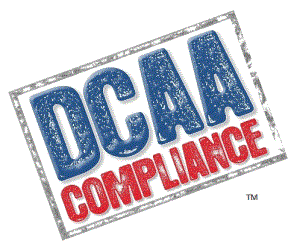FAR 52.216-7(d) – Allowable Cost and Payment
“2(i) The Contractor shall submit an adequate final indirect cost rate proposal to the Contracting Officer (or cognizant Federal agency official) and auditor within the 6-month period following the expiration of each of its fiscal years.”
The last decade proved largely unkind to DCAA as it received constant criticism from Congress, other government auditors (GAO, DOD OIG), other areas of Government (DOD, DOE, NASA, GSA, etc.) and the occasional contractor.
A great deal of the criticism, and two ACTS OF CONGRESS, focused on DCAA’s simple inability to complete audits and address contractor costs through timely audit of contractor’s incurred cost proposals (ICPs). An ICP is a contractor annual report accounting for the money spent and allocated to a government contract.
DCAA’s primary defenses are the increase in work due to almost two decades of war, a recent focus on more complex audits, and inadequate staffing.
Over the years I employed one simple breakdown to illustrate DCAA’s work efforts. According to DCAA’s own Report to Congress, DCAA employed 4,167 auditors. According to the same report, DCAA completed 3,581 audits in 2017. This works out to less than one audit per year per auditor (.86 audits per auditor). In the 2011 report (the oldest on DCAA’s website), the number of auditors was higher at 4,225 and the number of completed audits stood at 7,390 for a ratio of 1,75 audits per year per auditor.
Apparently 58 more auditors made a huge difference.
Skewing this analysis is the number of incurred cost proposals DCAA closes without audit. In 2107, DCAA closed 22.5% of their incurred cost proposal by audit (1,527 out of 6,786). What happened to the other 5,259 contractor ICPs? The government accepted the contractor’s proposed rates without audit.
Yes, the vast majority of work the AUDIT Agency does each year is not audit.
DCAA often justifies this lack of audit by comparing itself to the IRS and the IRS’s procedures[1]. The IRS does not audit most taxpayers, so why should DCAA?
I do not agree with the comparison for several reasons. I believe such comparisons are like comparing oranges and Italian race cars.
One simple reason is that the IRS is in possession of enormous amounts of collateral data on taxpayers. A huge advantage not enjoyed by DCAA. The IRS receives a copy of your W2 from your employer, your interest income from your bank, even information on your health insurance. The collateral information for businesses is even larger to include payroll tax filings, SEC reports, and more.
In other words, when the IRS gambles on taxpayer cheating, they know a great deal more information then DCAA does when they gamble on contractors with taxpayer’s money.
I realize that the majority of contractors rose up and began dancing behind their desks at the idea that there is about a one-five chance of DCAA showing up to audit your incurred cost proposal.
While I do not wish to throw any contractor in front of the bus filled with DCAA auditors, I believe we are all better off with an active viable DCAA audit function. The friction of the audit process helps both contractors and the government. Contractors gain wisdom about compliance, the ability to make audits smoother and when to draw the line on ridiculous and even unlawful auditor requests, such as copies of employee’s birth certificates. The government gets practice at their job and, hopefully, learn not to make ridiculous and even unlawful requests[2].
A viable active DCAA audit effort also helps keep the government out of mischief. The decline of the audit function and the resulting backlog of incurred cost proposals reaching monstrous numbers, has resulted in some changes in DCAA methods that I will categorize as mischief: 1) DCAA expanding their ‘model’ (in their minds) incurred cost electronically and; 2) DCAA confusing adequacy and audit.
NEXT – “Good Intentions and an Honest Effort to Avoid Work”.
[1]DCAA Director Bales’ testimony before Congress on Apr 6, 2017 (page r) https://docs.house.gov/meetings/AS/AS06/20170406/105777/HHRG-115-AS06-Wstate-BalesA-20170406.pdf
[2] I received my second request from different audit offices for contractor’s home addresses this morning. The previous request was a couple of years ago.
